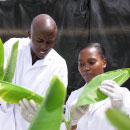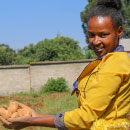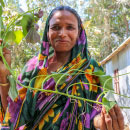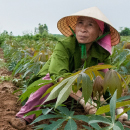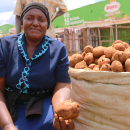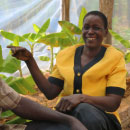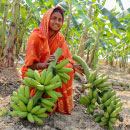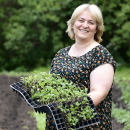A problem for many vegetatively propagated crops is that they can accumulate pests and diseases that damage subsequent plantings.
Banana bunchy top disease (BBTD), for example, is a viral disease that causes large yield losses and that has spread widely in sub-Saharan Africa, where it threatens the livelihoods of smallholder farmers. It spreads largely through informal exchange of suckers that may be infected, although aphids can also transmit the disease to nearby plants.
Managing the disease demands more work from household members, which may put women and men under different pressures. It also requires the cooperation of women and men across the whole community. RTB researchers studied the management of BBTD in southern Cameroon in order to understand the social norms that govern how men and women approach the problem of disease management and banana production more generally. Such an understanding is essential to design gender-responsive strategies for banana management and BBTD recovery. Sex-disaggregated individual interviews and focus group discussions provided the raw data.
By and large, in Cameroon men grow bananas for sale, while women are responsible for feeding the household. Decision-making on aspects of banana production tends to follow gender roles, although in some cases, women and men report that most decisions were taken by the other. For example, women say that men decide when to sell harvested bananas, while men say the decision rests with women. The study identified many gender differences in access to resources and services and decision making about banana production. As a result of these differences, women face a greater risk from BBTD than men. Women are actually more knowledgeable than men about seed quality and how to identify disease symptoms in banana suckers, but their access to clean seed is limited by costs and connections.
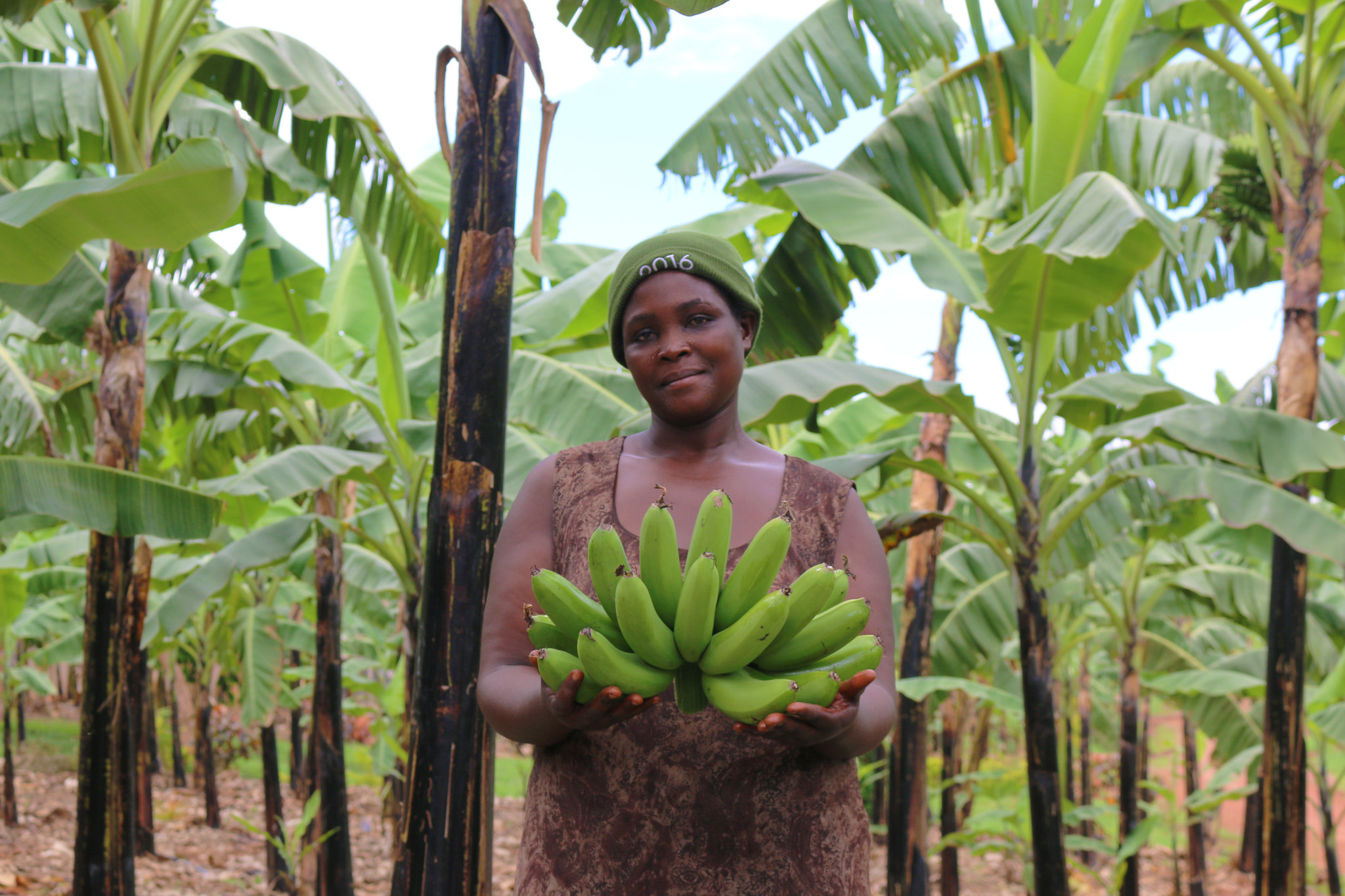
One approach for future projects will be to develop a seed system that sets out to support women. Deliberately targeting women’s groups as a conduit for information and clean planting material as part of BBTD recovery efforts is likely to enhance not only banana production but also inclusiveness and equity.
The importance of seed supply systems comes to light in another detailed social study of banana farmers in Uganda. Breeders have rightly focused on the traits that farmers want, but it is equally important to understand where and why farmers get new planting material. The study revealed that farmers associate formal seed sources with improved varieties and low levels of diversity, distributed as tissue culture plantlets. Informal sources offer suckers of traditional varieties and high levels of diversity. Most of the farmers sought new planting material for the same reasons; financial gain, food security and to sustain and develop the household. However, the ways in which farmers pursued these goals was related to scale of production and gender.
Both sexes see a path from gaining knowledge to higher income, but while men gain knowledge from formal sources, women gain knowledge from farmer-to-farmer exchanges. In addition, men use traditional and improved varieties, while women use mostly traditional varieties. Other differences reflect the greater pressure on women’s time and labor.
The key conclusion of the study is that when they are selecting a source for banana planting material, these farmers consider many more attributes than the specific variety. They are also interested in diversity, new varieties, how much seed is available and timing of availability, need for transportation, trustworthiness of the source and many other factors — all for a variety of reasons. Diversity, for example, provides staggered harvests that can smooth income generation. Using informal seed systems reduces expenditure, freeing resources for, say, school fees.
Recognizing that banana seed systems contain complex interactions of social and technical components, quite apart from the genetic traits of varieties, is a prerequisite for designing effective seed system interventions.

